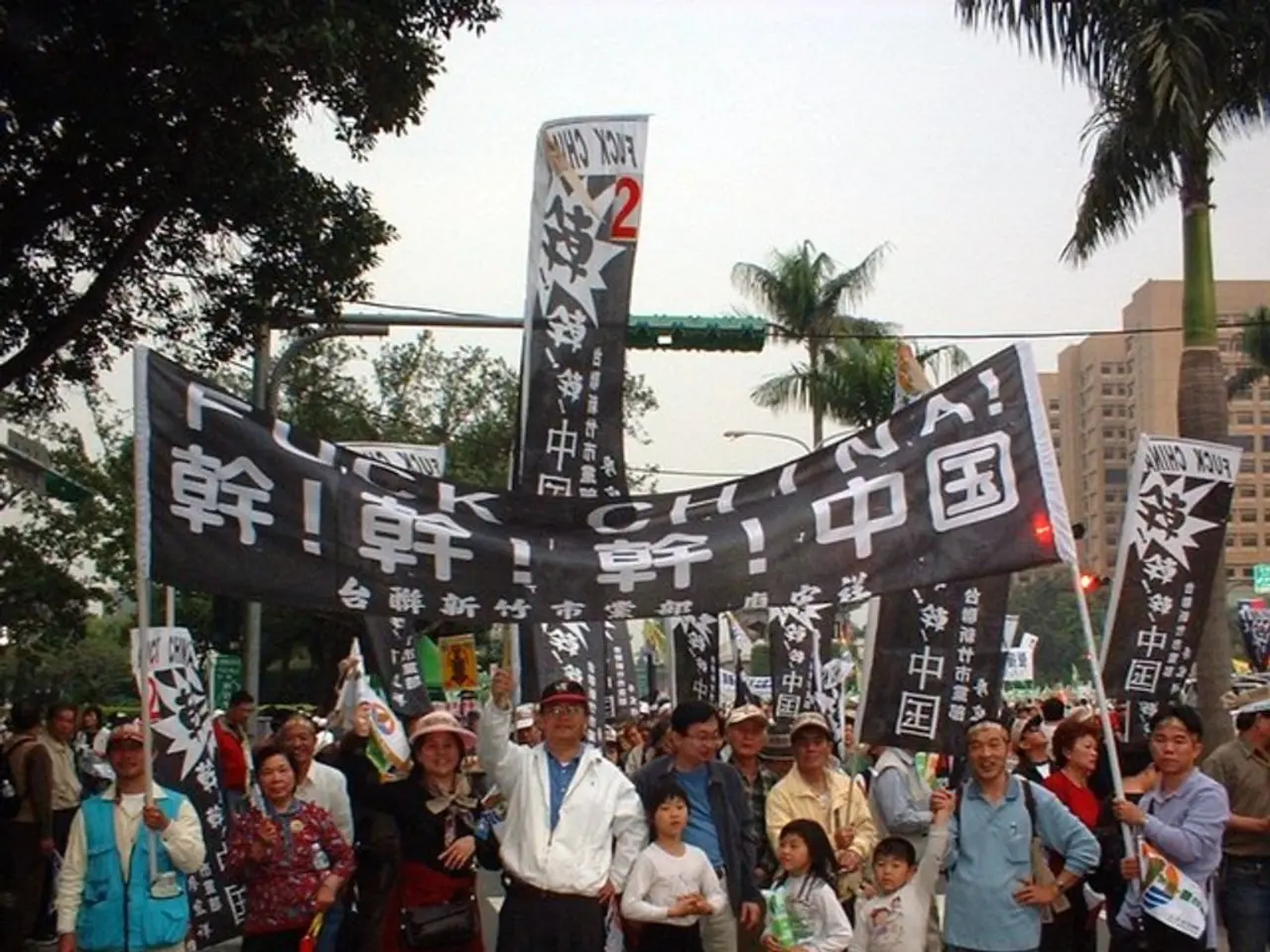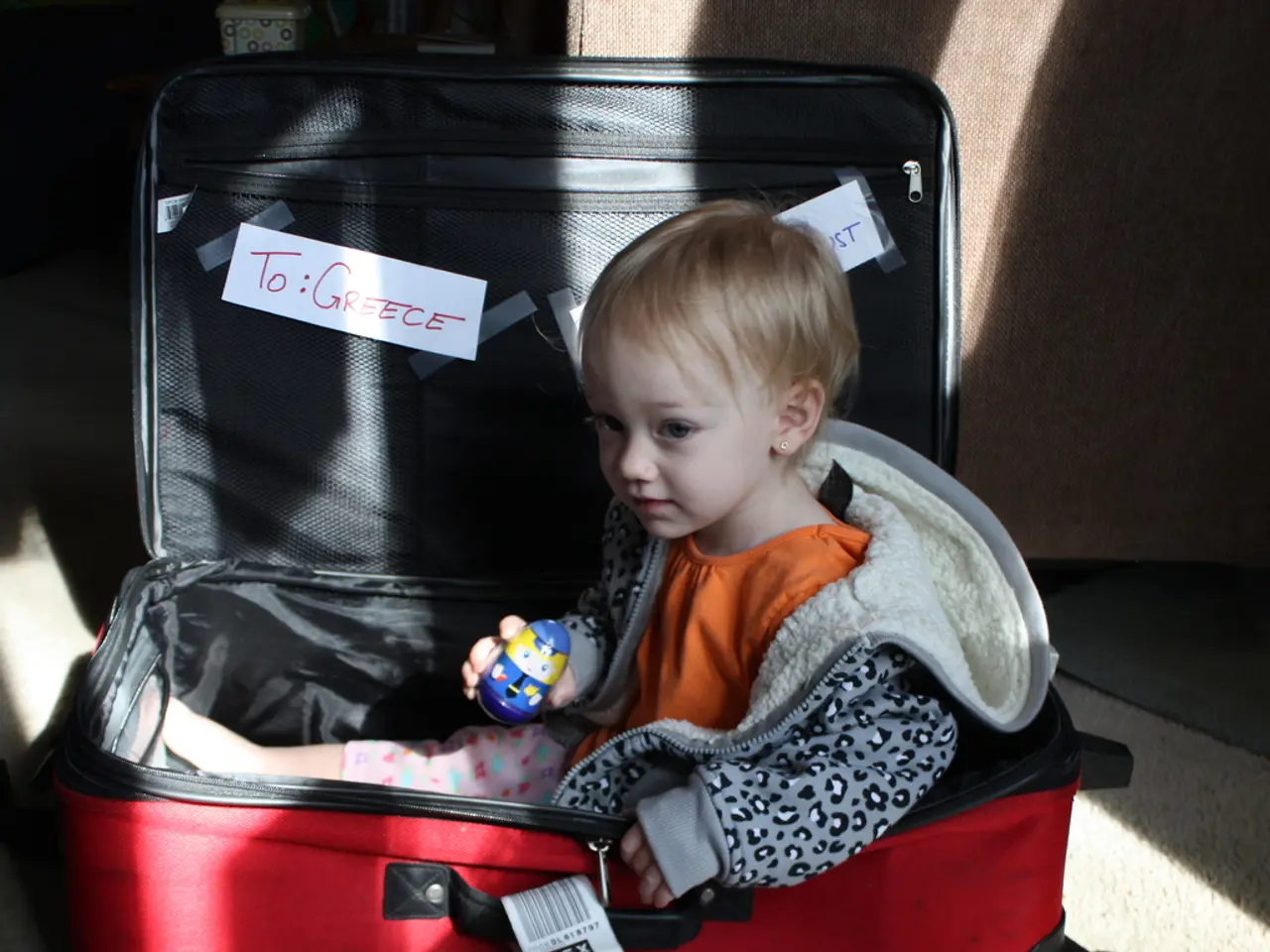Annual Display of Cultural Spectacles Dwindled in Size
The Christopher Street Day (CSD) parades and Pride events across Europe are facing a significant increase in anti-queer crimes, with a 35% surge in cases targeting transgender and non-binary individuals compared to the previous year. This unsettling trend can be attributed to several interconnected factors.
One of the main drivers is the rise of far-right and extremist groups, who increasingly target Pride marches with counter-demonstrations that promote traditional heterosexual family values and seek to intimidate LGBTQ+ participants. In countries like Germany, these groups have been using such events as a platform to recruit young people to right-wing extremism, especially in more conservative or eastern regions.
Hostile political climates and government opposition also play a role. In some countries, officials have openly opposed Pride events, while in others, authorities have allowed or ignored violent attacks by anti-LGBTQ+ protesters, emboldening anti-queer violence and undermining the safety of participants.
Social backlash and hate crimes are another concerning factor. Pride parades in places like Budapest have faced violent attacks, showing a broader societal resistance to LGBTQ+ visibility and rights.
The loss of corporate and financial support is another challenge. Activists cite a "Trump effect" where anti-diversity campaigns reduce corporate sponsorship and funding for Pride events across Europe, hindering organizers’ ability to fund adequate security and inclusive outreach, increasing vulnerability to attacks.
However, efforts are being made to counteract these issues. Enhanced security measures, such as increased police presence, barriers, and secure transportation, are being implemented to protect participants. Legal and political advocacy is also playing a role, with international pressure and court decisions helping to permit marches despite government opposition.
Community awareness and resilience are also crucial. Promoting solidarity and visibility while countering extremist narratives through education and public campaigns helps reduce stigma and foster safer environments. Restoring and increasing sponsorship is also critical to enabling better security and inclusion efforts.
This weekend, the CSD in Cologne will take place, one of the largest demonstrations for the Christopher Street Day in Europe. Around 250 groups with about 60,000 participants will march through the city center with the motto: "Many, together, strong". Despite the challenges, participants and visitors want to demonstrate loudly but peacefully for equality and social acceptance.
However, right-wing youth groups are mobilizing for counter-demonstrations against CSD parades, and some American companies have withdrawn as sponsors due to the policies of US President Donald Trump. The social climate has changed, with queer people facing increasing hostility.
In response, it is essential that efforts to ensure the safety and inclusion of LGBTQ+ individuals continue, including enhanced security measures, legal protections, and ensuring sustainable funding to maintain safe and inclusive Pride celebrations.
- The surge in anti-queer crimes during Community Pride events in Europe can be linked to the rise of far-right and extremist groups who use these events as a platform to promote traditional values and recruit young people to right-wing extremism.
- In some countries, hostile political climates and government opposition contribute to the rise in anti-LGBTQ+ violence, as officials openly oppose Pride events or ignore violent attacks by anti-LGBTQ+ protesters.
- Social backlash and hate crimes are a concerning factor, as visible Pride parades in places like Budapest have faced violent attacks, indicative of a broader societal resistance to LGBTQ+ visibility and rights.
- The loss of corporate and financial support, often attributed to the "Trump effect" and anti-diversity campaigns, hinders organizers' ability to fund adequate security and inclusive outreach at Pride events, increasing vulnerability to attacks.
- To counteract these issues, efforts are being made to enhance security measures, promote legal and political advocacy, increase community awareness and resilience, and restore and increase sponsorship for Pride events, ensuring safe and inclusive celebrations.




